Safe Forever
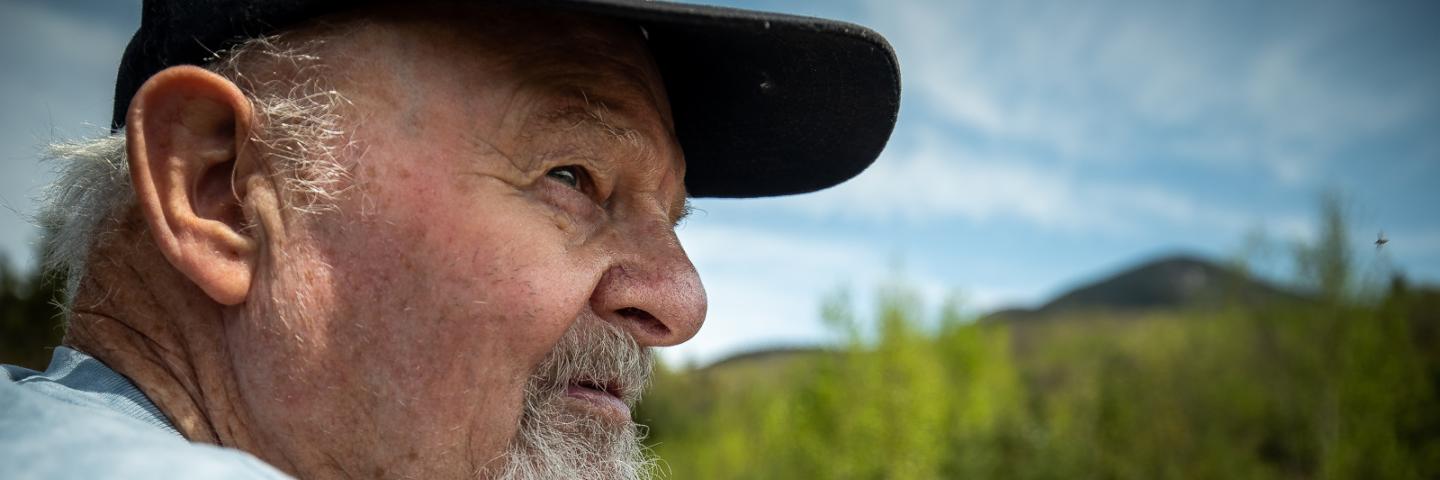
In July 2021 Bob Kidder officially closed on more than 80 acres of conservation easement on his land in Stark, N.H. cementing its place as open land and protecting one of these cascading streams, Jimmy Cole Brook, and surrounding riparian areas from development pressure in perpetuity.
Far in the north country of New Hampshire, nestled in a valley is the picturesque town of Stark. Small farms dot the upper Amonoosuc River valley here and small streams cascade down from the mountain peaks above, gradually making their way to the Connecticut River in nearby Northumberland, N.H.
Stark is a small town in a rugged and remote part of New Hampshire. Like the town itself, the people here are just as rugged and resilient. Among them is possibly the most resilient: Bob Kidder, and he has many passions, among them is conservation.
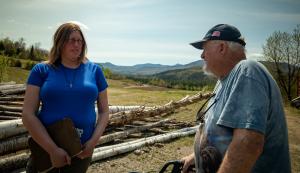
In July 2021 Bob Kidder officially closed on more than 80 acres of conservation easement on his land in Stark, cementing its place as open land and protecting one of these cascading streams, Jimmy Cole Brook, and surrounding riparian areas from development pressure in perpetuity. Enrolling the land in an Agricultural Conservation Easement Program (ACEP) under the Wetland Reserve Easement (WRE) program through the U.S. Dept. of Agriculture (USDA) and represented a milestone for the eighty-one-year-old Kidder. It was a big achievement and one whose foundation was set decades ago with a simple, two-dollar transaction
Bob grew up here in this backwoods town in the often-unforgiving northern rural area. Bob wears his life experiences on his face, deep lines, and wrinkles on outdoorsman skin. You can see that despite living a life of being so many times the underdog, he’s the kind of person that can stare adversity in the face, laugh and laugh hard.
Bob went to live with his grandparents when he was two years old, his mother working miles away in a nearby mill town. Living estranged from his mother, he moved to escape an abusive stepfather. He found a different world in the woods of Stark. His part Native American – Abenaki – heritage of his grandparents helped him develop his passion for the land that surrounds them and showed him that by caring for it, the land will help take care of you. His grandmother showed him how to approach adversity in his life, his grandfather showed him the merits of hard work, tenacity, and drive.
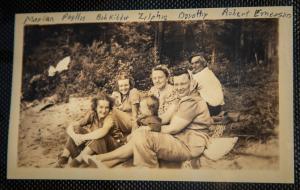
Those lessons came early and often - with no running water Bob would travel several times a week with his grandfather to the local spring to get water for their house and animal care needs. By horse team and sometimes even harnessed Holstein – even through the frigid north country snows of mid-winter in New Hampshire. He would hunt, fish, and learn to work with the land just to survive. They were lessons that would shape his life and eventually his decision for conservation.
The surrounding woods became Bob’s solace for a rough childhood. While he attended the local elementary school, he was chastised for his inability to learn. He suffered in education at a time when learning disabilities were not identified, addressed, or overcome.
Bob has dyslexia, and in a time when the disability was not at all understood, Bob really struggled with school. Despite a lot of effort on his part, Bob could not learn to read. It was a struggle he dealt with most of his life. In fact, he did not learn to read until he was over 50.
The woods on his grandparent’s property became his wonderland, his palace - a place to hide from the adversity he faced daily at school. Often feeling alone because of the ruralness of his home, and feeling ostracized by his classmates, it was in this nature’s classroom where he learned his most meaningful lessons, often the hard way.
There he learned to become resourceful with the many natural resources surrounding him and found his true talent – working with his hands. He slowly learned that he could build just about anything. He started as most boys do, forts, teepees, lean-tos, bridges, tunnels and slowly developed his talent to more complex assemblies. To say he was a go-getter was an understatement.
He quickly realized there was a place for him, but that it would have to be earned – no one was going to give it to him. He would have to build his own future and he started early.
Located along Nash Stream, one of the best fishing stretches in the state, he would watch weekend fishermen descend all summer and fall driving past his house. He identified a need, and a solution, one that would start his spirt of entrepreneurship. The solution was right there in front of him and provided by nature. At the age of ten he began to collect and sell bait to these visitors; worms that he would hand dig from the fields in front of his home.
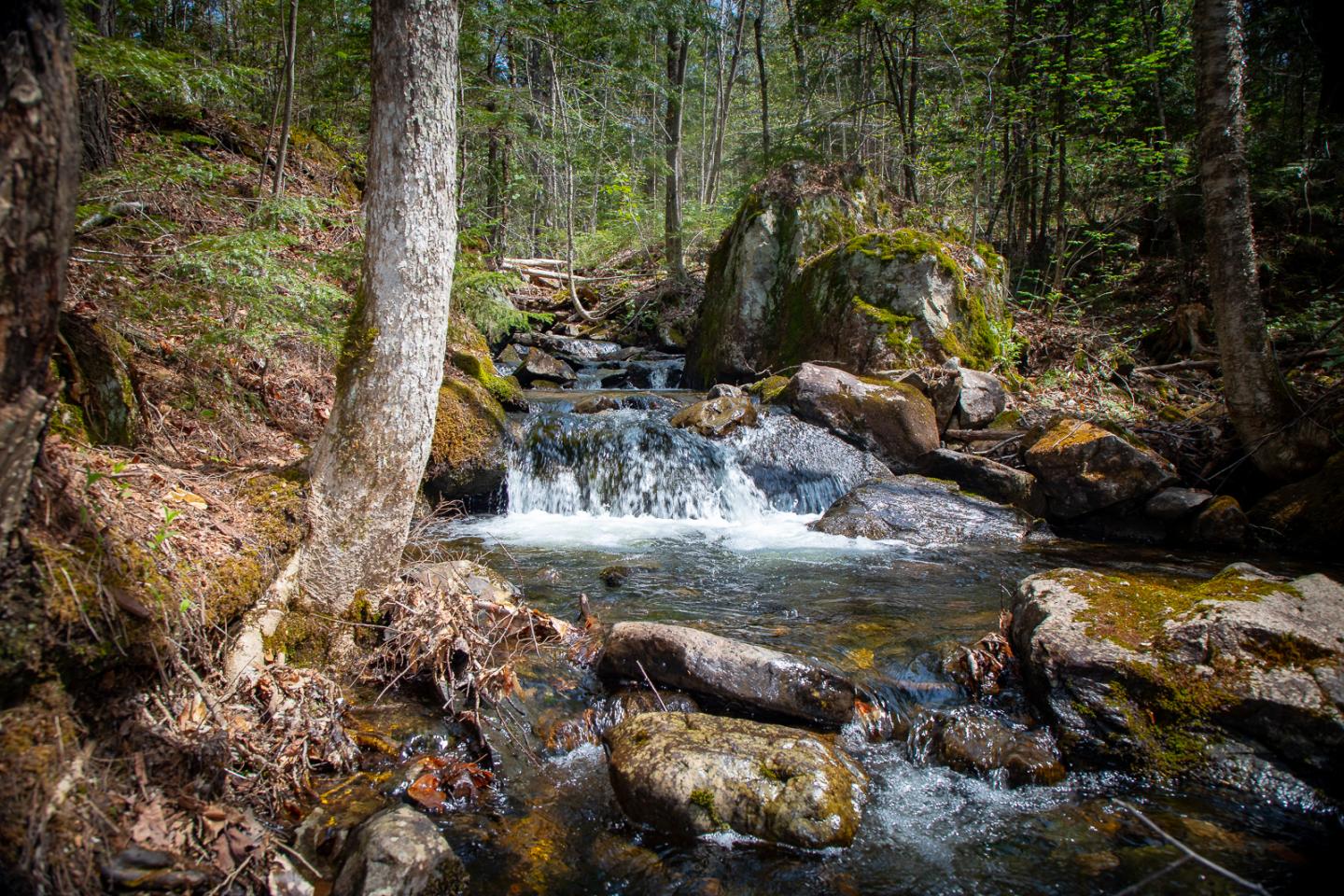
“When I was ten years old, I was the only kid in school with money in my pocket,” explains Bob, “no one could believe it.”
With his small business venture, he carried on while still struggling with school and continually developing his mechanical talents. One day in the summer when he was eleven his grandfather told him they were going to clear some brush for a surveyor to come in. Obedient he toiled and sweated in the woods, working to clear the area needed for the work to be done.
“I remember we worked all day on this – had a good, long day on this. I didn’t know what for, but I knew not to ask questions,” said Bob.
Bob attended a trade school nearby at his grandmother’s urging. While she loosely understood that Bob had a learning disability, there were few resources to help him. She realized that Bob needed to become a person that makes a living with his hands and talent - high school was not an option. At sixteen, he found himself a young man on his own, living in a boarding home during the week to attend trade school and learn skills that brought focus to his talents and head home on the weekends.
One weekend, he came home from trade school. As soon as he walked in the door his grandmother confronted him: ‘Your grandfather wants to talk to you.’ He could tell by her voice it sounded serious.
Going in a sitting down, he remembers not knowing what would come next:

“My grandfather never raised his voice to me,” recalls Bob, “Immediately I thought what the heck did I do wrong? What cropped up this week while I was away?”
His stoic grandfather sat calmly in his chair:
‘Bob,’ his grandfather said, ‘a few years ago we had you cut brush and work with a surveyor, and remember we put that line in?'
‘Yeah – I remember that’ Bob replied uneasy about where the conversation was going.
‘Well, everything North of that line – I’m going to sell it to you,’ he replied.
Stunned, Bob took a moment. ‘Well … what do you want for it?’
‘Two dollars,’ his grandfather answered.
‘Well, I don’t know if I’ve got two dollars,’ Bob replied. Reaching for his wallet he found that he had three lonely dollars.
“I handed him two dollars,” recalls Bob, “we shook hands and he says ‘There, it’s done, it’s yours’ … he turned to my grandmother and said, ‘after I pass this land will go to Bobby, he paid me; so that’s that.’”
Bob chuckles as he recalls this – he admits that sometimes he still can’t believe it happened.
Bob carried on with trade school and his power to create continued to grow. If it could be made of wood, he could make it. He would start to take on side projects to earn a little cash. He felt like he was finding his way in the world.
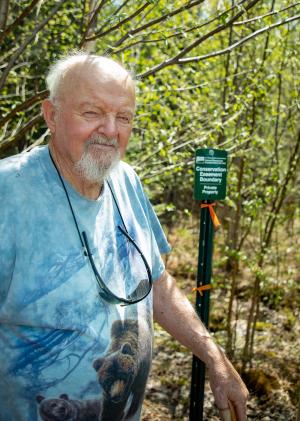
Then, heartbreak. Bob was told that he would not officially graduate from trade school. Despite his straight A’s in all his shop classes, he was told he was unable to complete part of the program due to his illiteracy. He would receive a ‘certificate of attendance’ instead. This huge setback was a blow to a young man that worked so hard to find his place. While shattered by the news, he didn’t dwell on it. There was work to be done and living to be had.
Years would pass and Bob developed into a man, struggling to get along in a society so dependent on literacy. He hid his disability from the world, often feeling ashamed. Through tenacity and resilience, he did well and became successful. He started a construction company and built many things. He did fine woodwork and even renovated the pews in the historic Stark Church. He even ended up designing, constructing, and leasing out office buildings. By happenstance one would eventually be the Lancaster, New Hampshire USDA’s local service center for the Farm Service Agency and Natural Resources Conservation Service in Coös County. He also built a facility that would house the Woodsville, New Hampshire USDA Service Center for Grafton County.
He acquired the land after his grandfather’s passing as agreed. He spent some time roaming the woods but not doing much else with it. Eventually he realized the potential for some of the minerals on part of the property. He started a sand a gravel company and sold the aggregate that became necessary for the surrounding ever-growing communities of the north country. All while not being able to read.
“I had workers that would work for me,” Bob recalls. “I would have to draw pictures of what I needed before sending them to the lumber yard or hardware store. I look back now and wonder how I ever made it work – I could read a tape measure, I could read a level and a square, but I still couldn’t read a book,” he said.
At 50 he realized something was missing in his life – it was time to throw off the vail from his disability. He had had enough of hiding his illiteracy from everyone, including his four daughters. At some point, head hung low, he walked into and adult learning institution in nearby St. Johnsbury, Vermont. There he met his life’s ultimate tutor, Joan Collins, who taught, coached, and mentored him.
Collins’ process involved learning about the student and recommending readings that would engage them to feed their desire for literacy. Learning about his passion for forests and wildlife, she recommended a book that changed his life and perception of conservation: ‘Black Elk Speaks.’
With this new door open to him, Bob became an avid reader, and consumed all manner of printed material. He was at a point late in his life where he was able to reflect on himself.
Mentally he kept going back to the land that he owned, he reflected on those earlier hard life lessons; he had learned so much in nature’s classroom. He now also learned so much about what he didn’t know about himself. He reflected on the buildings he had built, about the NRCS, about the material he had seen in their office that he could now read and understand. Now he understood their mission and he was very curious. He started to volunteer time in the NRCS’s Resource Conservation and Development (RC&D) program and began spending a lot of time with the NRCS district conservationist and learning more and more about conservation.
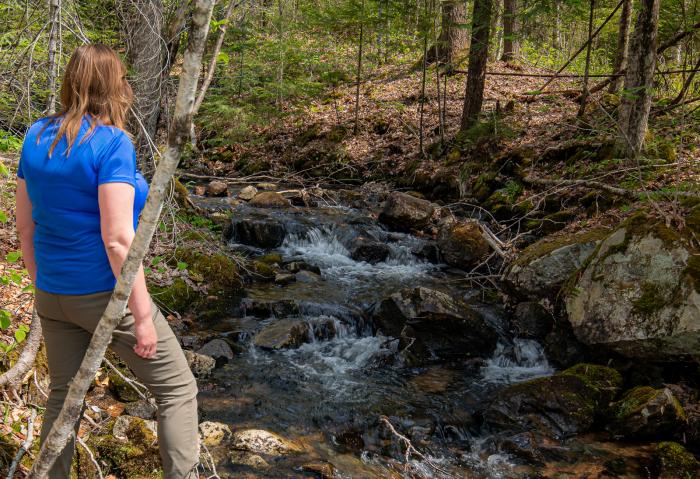
“… because of soil conservation, because I was involved with them – that office in Lancaster, I designed that office, these hands built that office ... The involvement and understanding of soil conservation came from that,” said Bob.
He began working with the agency to implement some practices on his property: delayed mowing to help various bird species, and pollinator plantings habitat. He began to understand soil health and volunteered time to the agency’s Resource Conservation and Development Program. The more he learned, the more curious he became.
Nearly depleting the current sand and gravel pit on his property, and not wanting to cause further impact to the beauty of the resources and nature that formed his identity, Bob became interested in the potential of enrolling his land in a conservation easement. He recognized the struggles he faced growing up and, in some way, wanted to preserve the lessons he learned and healing the land had provided him. He thought this might be the way.
“I follow the Native American way of thinking … the Native American belief is that you use it, and then your son uses it, and his son uses it and so on, but you don’t own it,” explains Bob.
Working with the staff at NRCS, they identified that Bob’s property was a great candidate for a Wetland Reserve Easement. The property abutting Nash Stream State Forest, and with Jimmy Cole Brook running right up the middle was a prime candidate for an easement. Bob enrolled more than 80 acres of the property and, along with the agency, has developed plans to implement further conservation activities to enhance the benefits to both terrestrial and aquatic species.
Planning is underway for timber stand improvements on the easement. The team is also planning woody stream additions that will increase the aquatic species habitat.
For Bob, this has all come full circle. From a storied youth in these woods to giving it back to nature and protecting it forever, Bob smiles at the future standing atop the trials and tribulations of the past.
It feels very good that this land will be conserved forever explains Bob with a caveat, “but not in a personal way. I believe in the Native American way,” says Bob, “you only use the land while you’re here. I violated that – they would have never mined it,” said Bob talking about the gravel pit. Now I have tried to make that right, he continued.
“What I’m happy with here, this right in here,” said Bob pointing to a stand of trees on the property, “is an unbelievable deer yard – it always has been, and I hope the heck it always will be. That’s one of the reasons I did this: for the animals, for the wildlife. They’ll live here, they’ll die here, they’ll have their young here, and it will go on and on and on. That’s why I did this. Safe … forever.”
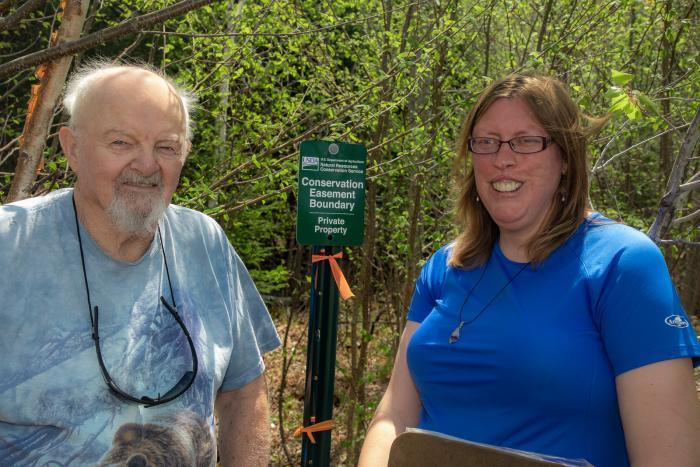
# # #

